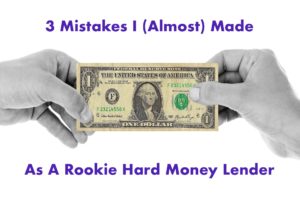Are you considering a real estate syndication for your next deal?
Maybe you’re like me and have reached a point in your real estate investing career where you are looking to get into a real estate syndication deals to accelerate your growth.
Real estate syndications offer a few advantages over other real estate investment vehicles. But the reason I like them is that they offer 3 ways to accelerate your growth as a real estate investor:
- A more passive way to invest
- Access to bigger deals
- Learning from experienced investors
This article will explore those growth accelerators, plus:
- Define what real estate syndication means
- Cover the most common type of deal structure
- Review typical returns you can expect with a real example
- Cover some downsides to real estate syndication deals
- Highlight real estate syndication disasters to avoid
Let’s start with the definition of real estate syndication.
What Is Real Estate Syndication?
Real Estate Syndication Definition
A real estate syndication is simply defined as a pool of investors and managers who combine their capital and skills to improve or build a real estate property.
Let’s break that definition down:
“A pool of investors and managers”
A real estate syndication is comprised of 2 groups of people – Investors and Managers/Sponsors.
“who combine their capital and skills”
The investors bring their capital. They have the funds. The Managers bring their skills and the know-how to execute the plan.
“to improve or build a real estate property”
Real estate syndicates are formed for one of two reasons. They will either improve and manage an existing property or they will build a new property.
Below are some other terms and their definition you may encounter in your research of real estate syndications.
Private Equity Funds Vs. Real Estate Syndications
This type of real estate investing can get confusing because of the relatively recent introduction of crowd funding into the space.
However, there is one clear distinction between a Private Equity Fund and a Real Estate Syndication.
In a Private Equity Fund, the money is collected BEFORE a property is identified. The opposite is true for a Real Estate Syndication where the Investors are lined up AFTER the property is identified.
Real Estate Crowdfunding Sites
Real estate crowdfunding sites took off after the 2012 Jobs Act opened up these investments via online solicitation to non-accredited investors. It essentially made it easier for businesses to solicit small investments without the hassle of an IPO.
Real estate crowdfunding sites can offer either Private Equity Funds or Real Estate Syndications. Some offer both options.
Equity vs. Debt Investments
Popular crowdfunding sites like Fundrise allow you to invest in both equity or debt investments. An Equity investment is when you take a partial ownership stake in a property or several properties.
Whereas a Debt investment is when you are essentially providing a loan to another real estate investor.
Accredited vs. Non-Accredited Investors
Many of these sites are open to non-accredited investors making them an attractive way to get into the real estate investing game with only a small investment.
However, many crowdfunded deals require investors to be accredited. To be an accredited investor you must meet at least one of the following criteria:
- $200,000 annual earned income ($300k Joint) in past 2 years and you expect that to continue, OR
- Net worth of at least $1M excluding primary residence
As you can see, it’s not easy to qualify as an accredited investor. That’s why the non-accredited crowdfunded investment options have become so popular.
For more information and reviews of specific real estate crowdfunding sites, head over to IdealREI where my friend Eric breaks down the details on each of the major crowdfunding sites.
This article however, is focused on private real estate syndication deals. The kind you make through your connections with local real estate investors.
They are different because they are focused on pooling investor assets and skills to manage a specific property or group of properties.
3 Ways Real Estate Syndication Accelerates Growth
There are many reasons to get into a real estate syndication deal but here are three reasons why I am looking into them now at this stage in my investing career.
(Almost) Passive Income

Being a limited partner-investor in a real estate syndication deal is much more passive than being a landlord-investor.
In these types of deals, the Managers (or Sponsors as they are sometimes called) do all of the hard work. They find the deal, get the funding, do the paperwork, manage the property, etc. Investors simply collect their share of the profits.
This hands-off approach means you can do more deals. You don’t need to spend the time looking for a good property or managing it. That’s all done for you.
However, it’s not totally hands-off for investors.
Investing in a real estate syndication deal requires a lot of up front due diligence. There is a lot of paperwork involved. You need to review the numbers and the Private Placement Memo which can be several hundred pages.
Here are a few things included in the paperwork that you will need to review and know before handing over your cash:
- Summary of the deal
- FAQs
- Risk Factors
- Details of the property
- Terms, sponsor contribution, equity splits
- Investment projections
- Fees
- Payout & Distribution details (waterfall structure)
- How appreciation is determined
- Comparable properties
- Liquidity – Ability to sell shares
- Loan terms (fixed, variable)
In addition to the paperwork, you need to get to know the project sponsors and managers. What is their track record? How do past investors feel about their investments with them?
If you can, you should visit the property. Talk to the super and the tenants. What do they think about the property and how it is managed? Do the proposed value-adds on which the deal is based make sense?
Partner With Experienced Investors

I don’t know all there is to know about real estate investing. Not even close. Partnering with experienced real estate investors who know how to make these deals work is one of the main attractions of syndication for me.
As a DIY landlord, there is only so much I can learn on my own. Why not take advantage of the experience of others to accelerate your real estate growth?
Mentors
You can even end up finding a real estate mentor through syndicated deals. Big time investors are always looking for capital and help. If you have money and are willing to do a little work to learn the ropes, many investors will teach you what they know.
Just be sure to give more than you take from your mentor. Provide value. Don’t be greedy. Be a good mentee by listening and taking the actions they ask you to take.
Access To Bigger Deals

I don’t know about you, but I am not sitting on millions of dollars burning a hole in my bank account.
However, I’ve covered my basic operating expenses and have a nice capital reserve (Landlord Tip #2). I have some extra cash but not enough to buy another property for cash. And certainly not millions to get into an apartment complex.
With real estate syndication you can get access to these bigger deals. This will help accelerate your growth as a real estate investor even if you can only invest a small amount. That’s because you can share in the potential gain at the end of the deal. This capital gain can be huge relative to investing in smaller properties.
In addition, bigger deals have intrinsic advantages:
- Economies of scale – more doors under one roof
- Diversification – can purchase multiple properties at once
- Limited Risk – The LLC or LP owns and manages the property
These are deals that would have otherwise been out of reach for investors like you and me.
What Are Typical Real Estate Syndication Deal Structures?
There are countless ways to structure a real estate syndication deal but the most common one is the Equity Split.
Preferred-Equity Splits
The percentages can change but Preferred-Equity Split real estate syndication deals involve a division of the equity in the assets based on what each has invested. A typical split is 70% in favor of the passive investors.
Here’s what it might look like:

Real Estate Syndication Players – Managers and Sponsors
Managers (also called Sponsors) of a real estate syndication will earn a portion of the equity through their skills (i.e., sweat equity). This is typically between 20% and 30% of the overall equity in the deal. Think of it as a non-cash investment.
Another way the Managers get paid is through various milestones and activities such as securing the loan and managing the property. The list can get long.
Typical Manager-Sponsor fees include:
- Acquisition Fee (0.5% – 2%)
- Property Management fee (1%-2%)
- Disposition fee (1%-2%)
- Financing Fee
The more management fees there are, the less profit there is in the deal to pay the Limited Investors.
Real Estate Syndication Players – Limited Investors
Depending on how the deal is legally structured, you can be a shareholder or limited partner as an investor. Your stake in the deal is directly proportional to the amount of cash you invest.
Limited Partner Investors typically earn a preferred rate of return. This means they are entitled to be paid before the Manager-Sponsors get paid.
For example, in a 70/30 split, a typical investor will receive 8% (or some other agreed upon percentage) on the cash they invested before the remaining profits get split 70% to Investors and 30% to the Manager-Sponsors.
Straight-Equity Splits
A variation of the above structure is to offer a simple straight equity split. This means everyone gets a share of the first dollar earned. There is no preferred payout.
In this case, the split is weighted much heavier in favor of the Investors to compensate them for the additional risk.
90/10 or even 95/5 would be normal.
What Return Can I Expect From A Real Estate Syndication?
I recently closed on a hard money loan where I was able to earn over 13% with interest and points.
So how do real estate syndication deals compare?
What Are Typical Returns In A Real Estate Syndication Deal?
A typical equity real estate syndication deal will generally look something like this when it comes to getting paid:
- Preferred Return of 6% to 12%
- Carried Interest split 70/30 (or some other combination)
Here’s what that means.
As a passive investor in an equity deal (part owner in a property or group of properties) you will be paid a percent of the cash flow BEFORE the general managers and sponsors of the deal.
In addition, once the preferred return percentage is paid out, any remaining cash flow is split between the passive investors and the deal managers/sponsors.
A typical payout split is 70/30 in favor of the passive investors but it can be set up with any split the partners agree to.
Example Numbers For A Typical Real Estate Syndication Equity Deal
Here’s an example based loosely on a real-world deal I was evaluating.
Property Acquisition Costs
| Purchase Price | $1,800,000 |
| Closing Costs | 30,000 |
| Down Payment | 450,000 |
| Reserves | 20,000 |
| Cash Needed | 500,000 |
| Mortgage | 1,350,000 |
Let’s assume a 12-unit property can be acquired for $1,800,000 purchase price plus $30,000 closing costs.
In addition, the cash needed to cover upfront repairs and establish a cash reserve is only $20,000. This property is relatively new and in good condition.
This brings the total up front cost to $1,850,000. Investors will put up $500,000 and the rest will be covered by a 30 year mortgage at 4.5%.
Monthly Operating P&L And Cashflow
Now let’s look at how the property performs over time.
| Year 1 | Year 5 | |
| Gross Rent | $19,500 | $24,375 |
| Vacancy | (1,170) | (1,463) |
| Net Rents | 18,330 | 22,913 |
| Management Fees | (1,170) | (1,463) |
| Property Taxes | (3,500) | (3,750) |
| Insurance | (400) | (450) |
| Utilities | (1,100) | (1,200) |
| Sewer/Water | (350) | (375) |
| Garbage | (100) | (110) |
| Repairs & Maintenance | (2,340) | (2,925) |
| Marketing | (100) | (100) |
| Administrative | (195) | (244) |
| Other | (50) | (50) |
| Net Operating Profit | 9,025 | 12,246 |
| Less: Mortgage P&I | (6,840) | (6,840) |
| Net Monthly Cashflow | 2,185 | 5,406 |
In this example the property only generates $2,185 cash per month in the first year. That’s only 5.2% Cash on Cash return. However, By year 5 it’s generating $5,406 per month or about 13.0% Cash on Cash return.
Real estate syndication deals typically require some time to bring the property up to it’s full potential. Perhaps a few of the units need renovating to raise rents or the Sponsors plan to build extra parking spaces. These things will take time before the profits can be realized.
Investor Payout
So how would you get paid as an investor in the above example?
Let’s assume you invested $50,000 of the $500,000 initial cash investment.
Let’s also assume this deal offers an 8% Preferred Return with a 70/30 split on Carried Interest.
| Year 1 | Year 5 | |
| Monthly Cashflow | $2,185 | $5,406 |
| Annual Cashflow | $26,217 | $64,872 |
| Preferred Return | ||
| 8% Preferred Return | $40,000 | $40,000 |
| Paid to Investors | $26,217 | $40,000 |
| Balance | $0 | $24,872 |
| Carried Interest | ||
| Investor Portion | $0 | $17,410 |
| Sponsor Portion | $0 | $7,462 |
| Total Return | ||
| Investor Portion | $26,217 | $57,410 |
| Sponsor Portion | $0 | $7,462 |
In year one there is not enough cash to pay the total expected Preferred Return of 8% or $40,000 ($500,00 x 8%). In this case, the investors only get $26,217 while the Sponsors get nothing.
However, by the 5th year there is enough cashflow to pay the investor’s $40,000 Preferred Return. The remaining $24,872 gets split 70/30 in favor of the investors.
In our hypothetical example, if you invested $50,000 of the initial $500,000, then you would be paid $2,622 in year one or 10% of the cashflow that year.
However, in year 5 the payout changes because the Sponsors share in the returns. In that year, you would still get 10% of the Preferred Return ($4,000) but you would only get 7% of the Carried Interest or $1,741. That’s because you only get 10% of the 70% split.
At the end of years 1 and 5, your total return would be 5.2% and 11.5% respectively. Not too bad for not having to deal with tenants and turnovers!
Tax Sheltered Returns
Wait. Why would I invest in a real estate syndication deal that only pays me between 5 and 12% while I can earn 13% on a Hard Money Loan?
Tax benefits.
A large portion of the cash returned to Investors and Manager-Sponsors will be sheltered from taxes. This is because of depreciation. While you get the full cashflow, only a small portion of your payout will be taxable.
Consult your CPA to understand if a potential real estate syndication payout would be taxable to you. (IANACPA = “I Am Not A CPA”)
What About Appreciation?
OK. So maybe the after-tax return is comparable but isn’t a real estate syndication deal riskier? After all, there is no guarantee it will return 11.5% by year 5.
True. A real estate syndication deal IS risker than a hard money loan but it also has the potenial for a much higher payout when the deal is terminated.
As an owner in an equity deal you are also entitled to any appreciation once the property is sold or refinanced. In a hard money loan you are only entitled to the interest during the term of the loan.
Your share of the gain will be based on your equity percentage. Let’s assume the same example above. You put in $50,000 of the total $500,000 and the equity split is 70/30. In this case, you have a 7% stake in the appreciation too (10% of the 70% Investor portion of the equity).
If the property later sold for $2,300,000 then your share of the gain would be $35,000 ($500,000 x 7.0%). This is in ADDITION to all of the interest you collected.
How Long Do I Have To Wait To Get Paid?
Real estate syndication equity deals are long-term investments just like any other real estate investment.
Although you can expect to get paid your preferred return quarterly (assuming the property is performing to expectations), you will not see the real gain until the end of the holding period.
This can vary deal to deal but a typical holding period will be anywhere from 5 – 7 years.
You are required to hold this investment until that time when the property can be disposed of or refinanced to pay out the original investors. However, there may be provisions for exiting the deal early but they will come at a cost.
Real Estate Syndication Downsides
You may be thinking that this all sounds great but there must be some drawbacks. Here are a few of the downsides to investing in a real estate syndication deal.
- Lack of liquidity – Most deals require you to stay in the deal or have very strict ways to get out of one. Read the fine print!
- Tax reporting – Depending on where you live and where the property is located, you may have to file an extra state tax return or two.
- Accredited investors only – Most deals require you to meet the accredited investor tests noted above.
- Give up control – If you like to be the one making the everyday decisions, then you may not like investing in a real estate syndication.
- Paperwork – There is a lot of paperwork involved in the prospectus offer. You should have a lawyer review it and explain it if legalese is not your thing.
- Deal velocity – You earn a return only while your money is invested. Once the deal terminates you need to find another deal to keep your money working for you.
However, if you have more capital than time, then a real estate syndication deal may be an attractive way to grow your wealth.
4 Real Estate Syndication Disasters To Avoid

If you are thinking real estate syndications may be right for you then keep reading. It takes a lot of homework to make sure you avoid some of the more disastrous real estate syndication deal mistakes like these:
Failing To Meet Accreditation Test
Most real estate syndication deals are private offerings. They don’t have to go through the onerous process of registering the investment with the SEC. However, they are limited to selling only to accredited investors.
An accredited investor is one who is assumed to have general financial knowledge and is able to understand the risks involved in these types of deals.
If the investment type requires accredited investors and a non-accredited investor somehow gets in, it can void the whole deal.
Be sure the sponsors vet every single investor and verify their accreditation status.
Sponsors With No Skin In The Game
You want your sponsor’s interests to be perfectly aligned with your interests. It should be a win-win. That’s why most sponsors also participate in the deal as passive investors too.
Generally, you want your sponsors and managers to invest between 5% and 20% of the upfront cash investment. This will give them real pain if the deal doesn’t work out as planned. They will be out hard cash just like the other investors.
Optimistic Assumptions
Another way you can get burned in a real estate syndication is by relying on overly optimistic assumptions provided by the deal sponsors.
This is where you will have to invest the most time as a real estate syndication investor. You need to do your own due diligence and pressure test the sponsor’s assumptions.
This is best done with a sensitivity analysis. Test the low and high end of the income and expense ranges.
For example, what happens if the rents are 10% lower than projected? What happens if vacancies are 10% higher?
PRO TIP – Use a RentRange report to see what local rentals are actually renting for and the local vacancy rates. Sign up and use AR25OFF in the “Referral Code” field to get a 25% discount on all reports.
Run through each line item and test them for reasonableness and sensitivity. How much impact does each line item have on your projected payout?
Inexperienced Management Team
We all have to start somewhere but that doesn’t mean you should invest with someone on his or her first time sponsoring a real estate syndication.
Look for a management team and sponsor who have a winning track record.
Talk to prior investors. How do the feel about the deal? Are they being paid as expected? Were there any surprise fees? Ask for references from the sponsors but also try to seek out other investors to get the real scoop.
Go to a previous property they managed or are currently managing. How does it look overall? Does it seem to be well maintained or are there obvious signs of deferred maintenance. Ask the super what he thinks about the property. Would they live there?
This real world information will help you understand if you are getting into a deal with someone who knows how to make it successful or not.
Conclusion
A real estate syndication is simply a way for various investors to pool their skills and resources to invest in a property or group of properties.
At some point in your real estate investing career you may find yourself with more capital than time to invest. A real estate syndication deal may be the answer to accelerating your growth as a real estate investor.
While they can pay out big, they are not without risks and downsides.
Be sure to do your due diligence to avoid common disasters such as overly optimistic assumptions and misalignment between Investors and Sponsors.
Want To Learn More?
Sign up today in the space below (or to the right) for my monthly newsletter with access to more landlord tips and special offers!





Great article, that just came into my email box at the right time, as I’m currently researching into real-estate syndicate investing. Very informative and relevant for any one like me thinking of investing into syndication!
You’re doing a fantastic job, thanks for taking the time to put together such helpful article. Keep them coming!!
Awesome! I’m glad to hear these articles are helping some people! Keep us posted if you decide to invest. I did invest a small amount in Fundrise just to test the waters but it’s just a fund, not a private deal. I’ll probably have an update if I decide to pull the trigger on a private syndication deal in the new year.
Well-written article! I have found your real estate related blog through Feedspot blog list. You provide us useful informations about real-estate syndicate investing.